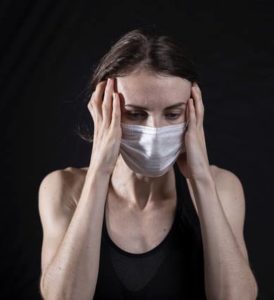At What Age Does Anxiety Peak?

Anxiety is a condition that can begin impacting your life in unexpected ways and without much warning. Everyone deals with anxiety differently, and several factors affect how you experience anxiety, and at what age it will impact you the most. Anxiety is defined by intense feelings of distress or turmoil, which can impact your ability to function normally for a specified time. Many things trigger anxiety, commonly related to relationships, environmental factors, past traumatic experiences, and even medical conditions.
Causes of Anxiety
Anxiety is rarely caused solely by something you do, so managing it requires an intrinsic knowledge of all aspects this condition carries. The peak ages for anxiety are typically between the ages of 5-7 years old and adolescence. However, everyone is different, and your anxiety can peak at various times, depending on what triggers it initially.
Merely feeling anxious is the body’s response to danger as the fight-or-flight hormone kicks in. Anxiety disorder is when constant feelings of fear start impacting your ability to live your everyday life. Anxiety disorder is classified by having persistent feelings of worry or stress, even when no triggers are present.
To learn more about anxiety and at what age it peaks, continue reading to find out more.
At What Age Does Anxiety Peak?
Before you can diagnose at what age your anxiety will peak, you must understand all the symptoms and signs of anxiety. There are several different signs of anxiety that you can identify early on before it progresses to the severe stages.
Here are some of the most common symptoms of anxiety disorder:
⦁ Always expecting the worse outcome of any situation
⦁ Difficulty concentrating or focusing
⦁ Constant jittery or tense feelings
⦁ Irritability
⦁ Feeling like your thoughts have gone blank
⦁ Emotions of dread or apprehension
All of these various symptoms can occur independently or in conjunction with other signs. Aside from the emotional and feeling invocations that occur during an anxiety episode, the condition can also make your body react in a very physical manner.
List of the Most Common Physical Signs of Having an Anxiety Attack:
⦁ Headaches
⦁ Dizziness
⦁ Shortness of breath
⦁ Shaking
⦁ Insomnia
⦁ Increased heart rate
⦁ Muscle twitches or tension
If you’ve been experiencing these symptoms, make sure you speak with a medical professional as soon as possible. By getting a proper diagnosis of your condition, you can see what treatment options are out there, such as medication or therapy.
Learning How to Manage Your Anxiety
Most anxiety attacks peak after 10 minutes; this is when you can expect the height of whatever emotions your feeling to be their highest. After 10 minutes, you should start calming down a little bit. On average, anxiety attacks don’t last past 30 minutes. During the peak of your anxiety attack, symptoms can be so intense that they make people feel like they’re having a heart attack.
You aren’t having a heart attack; it’s just an anxiety attack. Anxiety does not have a particular age at which it peaks; it can happen later or earlier in life for different people, all based on the triggers that cause you to have an anxiety attack.
People Also Ask
Q: At what age does anxiety peak?
A: Anxiety seems to peak at two pivotal points in life, during adolescence and childhood, which refers to the ages of 5-7 years old.
Q: How long does it take for anxiety to go away?
A: Different variables can trigger anxiety, and depending on the situation, effects tend to peak at 10 minutes and commonly go away after 30 minutes.
Q: Are there different levels of anxiety?
A: Yes, there are varying levels of anxiety, all of which help identify the specific distress or impairment that the feeling brings on. Here are the different anxiety levels: mild anxiety, moderate anxiety, severe anxiety, and panic-level anxiety.
Conclusion
Use all of the information we’ve included in this article to assist in your journey of managing your anxiety correctly. To better assist in managing your stress, ask yourself these two questions: “When does my anxiety seem to affect me the most?” and “At what age did I first notice my anxiety kicking in?” For any help regarding anxiety, contact Evolved Health Services today.
